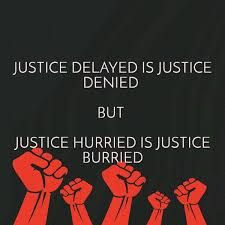⚖️ JUSTICE HURRIED RISKS JUSTICE BURIED - Analysis of the Singapore High Court Decision in the Arbitration Dispute - Sai Wan Shipping Ltd v Landmark Line Co, Ltd [2022] SGHC 8
“Justice delayed may be justice denied” (William Ewart Gladstone)[1] is a widely recognized principle in international jurisprudence.[2] It conveys that delayed justice can amount to a denial of justice. Parties involved in dispute resolution, whether through conventional court procedures or international arbitration, may suffer irreparable harm while awaiting the issuance of a final and legally binding decision/award. For instance, a claimant's business operations, which rely on the debt recovery process against the respondent, may collapse if an arbitral tribunal unjustifiably postpones rendering an award.
However, in its decision to annul the arbitral award in the dispute between Sai Wan Shipping and Landmark Line on January 14, 2022 (“the 14 January 2022 Decision”) due to an arbitrator issuing the award hastily and bypassing multiple procedural steps,[3] the Singapore High Court emphasized at the very outset of its decision: “While justice delayed may be justice denied, justice hurried risks justice buried.”
This raises the question: Is there a way to define and strike a balance between “hurried justice” and “delayed justice”? Through an analysis of the 14 January 2022 Decision, this post underscores the importance of procedural management and systematic scheduling of the timetable to achieve fair outcomes for the parties involved in international arbitration in general and Vietnamese arbitration in particular.
The full content of the post is now available on the ADR Vietnam Chambers Website: https://lnkd.in/eMjpveGG...
For details on the Singapore High Court Decision to annul the arbitral award in the dispute between Sai Wan Shipping and Landmark Line on January 14, 2022, see the following link: https://short.com.vn/6ECF
For an in-depth commentary article titled "JUSTICE HURRIED RISKS JUSTICE BURIED - Analysis of the Singapore High Court Decision in the Arbitration Dispute - Sai Wan Shipping Ltd v Landmark Line Co, Ltd [2022] SGHC 8" by Arbitrator/Mediator Nguyen Manh Dung and Arbitral Assistant Pham Duong Hoang Phuc, see the following link: https://short.com.vn/UyEe
----------------
[1] Former Prime Minister of the United Kingdom of Great Britain and Northern Ireland.
[2] This principle has been widely acknowledged and cited in various arbitration-related disputes, such as Carrefour Nederland B.V. v. Suning International Group Co., Limited and Suning Co., Ltd (HKIAC 2023), InfraRed Environmental Infrastructure GP Limited and others v. Kingdom of Spain (ICSID 2014), América Móvil S.A.B. de C.V. v. Republic of Colombia (ICSID 2016), and FREIF Eurowind Holdings Ltd v. Kingdom of Spain (SCC 2017).
[3] The High Court of the Republic of Singapore, Sai Wan Shipping Ltd v Landmark Line Co, Ltd [2022] SGHC 8, January 14, 2022.
















































































































































